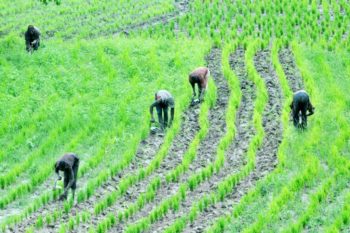
The Enuma FADAMA Rice Production Cluster in Kuchita, Lavun Local Government Area of Niger, says that Federal Government’s ban on importation of rice has boosted rice farming in the country.
The Chairman of the group, Ndatsu Fari, said on Thursday in Minna that the ban had helped rice farmers to improve their productivity.
He said that the policy had encouraged mechanised farming, while strengthening smallholder rice farmers and increasing local production of the commodity.
“Rice importation in Nigeria has been an impediment to local rice production because our government and farmers no longer paid attention to production of our own rice,’’ he said.
“So, we are supporting the Federal Government’s ban on importation of rice, as this will encourage local rice farmers and industries,’’ he said.
Fari, however, urged the government to make farm inputs and implements available, affordable and accessible to farmers, as this would boost the nation’s efforts to attain food security.
He said that 100 farmer clusters in the area were cultivating 10, 000 hectares of land, adding that each cluster was made up of 10 rice farmers.
He said that the farmers were producing 5.5 tonnes of rice per hectare of land.
Fari urged the FADAMA project to support the rice farmers with water pumping machines, power tillers, credit facilities and access road.
He, nonetheless, commended the World Bank as well as the federal and state governments for initiating the FADAMA project, saying that it had particularly impacted on smallholder farmers.
Recalled that the Minister of Agriculture and Rural Development, Chief Audu Ogbe, during an inspection tour of some rice farms in Lavun Local Government Area of Niger in October 2016, announced that rice importation into the country would cease in 2017.